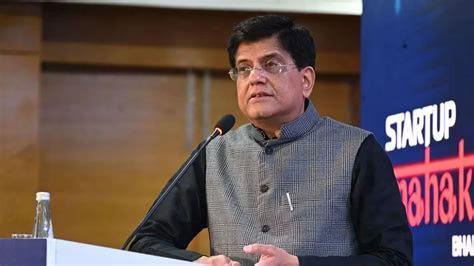
Indian Brands Go Global: Competing on Design & Quality
In recent years, India has emerged as a significant player in the global market, with its brands making a mark on the international stage. Gone are the days when Indian companies were merely focused on attracting foreign brands to invest in the country. Today, Indian brands are confidently exporting their own products, backed by strong manufacturing capabilities and strategic marketing efforts. This shift in perceptions has enabled Indian businesses to establish themselves as serious global contenders in various industries, from consumer goods to technology.
According to Dheeraj Sinha, CEO of FCB India, “Indian brands are winning globally on the back of design, quality, and competitiveness.” In an interview with The Core, Sinha highlighted the significant progress made by Indian brands in recent years. “Indian brands have come a long way in terms of quality, design, and innovation. They are no longer just seen as cheap alternatives to international brands, but are now recognized as global players in their own right.”
One of the key factors contributing to the success of Indian brands globally is their focus on design and quality. Indian companies have invested heavily in research and development, resulting in products that not only meet but exceed global standards. Take, for example, the case of luxury car manufacturer Tata Motors, which has made a significant impact in international markets with its stylish and feature-packed cars like the Harrier and Altroz.
Another factor that has contributed to the success of Indian brands is their ability to adapt to local market conditions. Indian companies have a deep understanding of the needs and preferences of local consumers, which has enabled them to tailor their products and services to meet these demands. For instance, the popularity of affordable smartphones has led to the success of brands like Xiaomi and Oppo, which have managed to capture a significant share of the global smartphone market.
Indian brands are also leveraging digital marketing and social media to reach a global audience. With the rise of e-commerce and social media, Indian companies can now reach customers directly, without the need for intermediaries. This has enabled them to build strong brand equity and establish a presence in international markets.
The success of Indian brands globally is not limited to any one industry. Companies like HCL, Wipro, and Infosys are making a mark in the technology sector, while brands like Haldiram’s and Mother Dairy are popular in the food and beverages industry. Even traditional Indian industries like textiles and handicrafts are experiencing a resurgence, with brands like Fabindia and Anokhi making a name for themselves globally.
The government has also played a significant role in supporting Indian brands’ global aspirations. Initiatives like the “Make in India” and “Startup India” programs have provided a boost to entrepreneurship and innovation, while policies like the “Ease of Doing Business” have simplified the process of setting up and running a business in India.
However, despite the progress made by Indian brands globally, there are still challenges that need to be addressed. One of the key challenges is the perception of Indian products as being of poor quality or lacking in design. To overcome this, Indian brands need to focus on building strong brand equity and investing in research and development to create products that meet global standards.
Another challenge is the high cost of marketing and advertising, which can be a significant barrier to entry for Indian brands looking to establish themselves globally. To overcome this, Indian companies need to focus on building strong relationships with local partners and distributors, and investing in digital marketing and social media to reach a global audience.
In conclusion, Indian brands are indeed making a mark globally, competing on design, quality, and innovation. With their focus on research and development, digital marketing, and strategic partnerships, Indian companies are establishing themselves as serious global contenders in various industries. As perceptions continue to shift, it is likely that we will see even more Indian brands making a name for themselves globally.






